In John 6, Jesus delivers His Bread of Life sermon. The chapter provides one of the most profound examples of juxtaposition in faith and offense based on the Savior’s doctrine.
After Jesus healed many diseased people, He went to the Sea of Galilee with His disciples. A multitude of at least 5,000 followed Him. He miraculously fed the people bread and fish.
Then those men, when they had seen the miracle that Jesus did, said, This is of a truth that prophet that should come into the world.
When Jesus therefore perceived that they would come and take him by force, to make him a king, he departed again into a mountain himself alone.
1. He is a prophet. Let’s forcefully make Him our king.
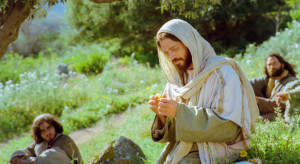 Jesus shook off the worldly claims to kingship and went to the mountain. Instances of Jesus going to the mountains include going to pray or commune with God. I wonder how He felt. He’d been testifying for nearly 3 years that He had a kingdom, HIs Father’s kingdom. But nobody seemed to understand His words. And still, He stood as a beacon beckoning all to follow Him, to rise to the majesty of His truth and light. Come, He said.
Jesus shook off the worldly claims to kingship and went to the mountain. Instances of Jesus going to the mountains include going to pray or commune with God. I wonder how He felt. He’d been testifying for nearly 3 years that He had a kingdom, HIs Father’s kingdom. But nobody seemed to understand His words. And still, He stood as a beacon beckoning all to follow Him, to rise to the majesty of His truth and light. Come, He said.
They came and followed but sought a temporal kingdom. Their short-sightedness on things of eternity sparks my own introspection.
So Jesus went away alone into a mountain. I don’t feel Jesus sought isolation. I’m sure He would have appreciated like-minded companions, people who could understand and withstand the intensity of His true self and His relationship with God, a real friend.
The people of Bountiful lifted their souls up, becoming as like-minded as they could at the time. Jesus met them where they were and included them in His prayers to the Father.
And when he had said these words, he himself also knelt upon the earth; and behold he prayed unto the Father, and the things which he prayed cannot be written, and the multitude did bear record who heard him.
And after this manner do they bear record: The eye hath never seen, neither hath the ear heard, before, so great and marvelous things as we saw and heard Jesus speak unto the Father;
And no tongue can speak, neither can there be written by any man, neither can the hearts of men conceive so great and marvelous things as we both saw and heard Jesus speak; and no one can conceive of the joy which filled our souls at the time we heard him pray for us unto the Father.
And it came to pass that when Jesus had made an end of praying unto the Father, he arose; but so great was the joy of the multitude that they were overcome.
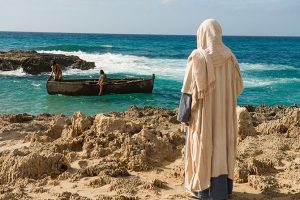 Jesus remained on the mountain when His disciples began their trek across the Sea of Galilee. A storm hit the sea and they rowed and rowed to reach the other side. Jesus came to the ship walking on the water. They were afraid. He identified Himself.
Jesus remained on the mountain when His disciples began their trek across the Sea of Galilee. A storm hit the sea and they rowed and rowed to reach the other side. Jesus came to the ship walking on the water. They were afraid. He identified Himself.
Then they willingly received him into the ship: and immediately the ship was at the land whither they went.
They received Him and IMMEDIATELY they were at land. How often He does this in the midst of our storms.
The multitude apparently waited for Jesus to return from being alone in the mountain. In the morning, they saw His disciples were gone and Jesus wasn’t around. They got into their own boats and sailed after them to Capernaum.
When they found Him, they asked when He got there.
He addressed their temporal concerns. They followed Him because He fed them.
Labour not for the meat which perisheth, but for that meat which endureth unto everlasting life, which the Son of man shall give unto you: for him hath God the Father sealed.
Then said they unto him, What shall we do, that we might work the works of God?
Jesus answered and said unto them, This is the work of God, that ye believe on him whom he hath sent.
They said therefore unto him, What sign shewest thou then, that we may see, and believe thee? what dost thou work?
2. What shall we do, that we might work the works of God?
This is an awesome question we all should ask.
3. What sign shewest thou that we may see and believe?
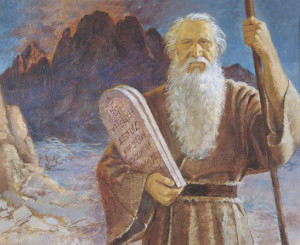 They pointed to Moses giving the children of Israel manna in the wilderness.Jesus pointed out that God gave them manna, not Moses.
They pointed to Moses giving the children of Israel manna in the wilderness.Jesus pointed out that God gave them manna, not Moses.
My Father giveth you the true bread from heaven.
For the bread of God is he which cometh down from heaven, and giveth life unto the world.
Then said they unto him, Lord, evermore give us this bread.
4. Give us this eternal bread.
I get this. The mundane parts of life get on my nerves a lot. Cleaning, eating, sleeping, when done well takes a lot of time. Aren’t there other more important things I could be doing with my time?
How awesome to receive bread that satisfies forever or water that quenches every thirst!
And Jesus said unto them, I am the bread of life: he that cometh to me shall never hunger; and he that believeth on me shall never thirst.
But I said unto you, That ye also have seen me, and believe not.
All that the Father giveth me shall come to me; and him that cometh to me I will in no wise cast out.
For I came down from heaven, not to do mine own will, but the will of him that sent me.
And this is the Father’s will which hath sent me, that of all which he hath given me I should lose nothing, but should raise it up again at the last day.
And this is the will of him that sent me, that every one which seeth the Son, and believeth on him, may have everlasting life: and I will raise him up at the last day.
They began to feel uncomfortable. What was Jesus saying? They knew His parents. He came from Nazareth, not from heaven.
Jesus continued.
Verily, verily, I say unto you, He that believeth on me hath everlasting life.
I am that bread of life.
Your fathers did eat manna in the wilderness, and are dead.
This is the bread which cometh down from heaven, that a man may eat thereof, and not die.
I am the living bread which came down from heaven: if any man eat of this bread, he shall live for ever: and the bread that I will give is my flesh, which I will give for the life of the world.
With truth pounding in ears unready or unwilling to receive it, they couldn’t see outside of themselves. They couldn’t look past the literal.
5. How can this man give us his flesh to eat?
They couldn’t grasp His doctrine.
Then Jesus said unto them, Verily, verily, I say unto you, Except ye eat the flesh of the Son of man, and drink his blood, ye have no life in you.
Whoso eateth my flesh, and drinketh my blood, hath eternal life; and I will raise him up at the last day.
For my flesh is meat indeed, and my blood is drink indeed.
He that eateth my flesh, and drinketh my blood, dwelleth in me, and I in him.
As the living Father hath sent me, and I live by the Father: so he that eateth me, even he shall live by me.
This is that bread which came down from heaven: not as your fathers did eat manna, and are dead: he that eateth of this bread shall live for ever.
They were done.
Many therefore of his disciples, when they had heard this, said, This is an hard saying; who can hear it?
When Jesus knew in himself that his disciples murmured at it, he said unto them, Doth this offend you?
From that time many of his disciples went back, and walked no more with him.
They saw and rejoiced at the miracles in their lives. They recognized the Savior’s penultimate leadership skills. They wanted Him to be their king until He invited them to consider their biases and preconceived ideas. He challenged everything they thought was true. But instead of revolutionizing their thinking, they murmured. They didn’t seek to understand and apply His doctrine, so they could not actually receive and accept Him.
Do I?
When the doctrine is a hard thing, am I offended? Do I go back?
Will Ye Also Go Away?
Then said Jesus unto the twelve, Will ye also go away?
Then Simon Peter answered him, Lord, to whom shall we go? thou hast the words of eternal life.
And we believe and are sure that thou art that Christ, the Son of the living God.
Do I understand, accept, and receive the Bread of Life? Do you?
About Delisa Hargrove
I am a member of The Church of Jesus Christ of Latter-day Saints. I have moved 64 times and have not tired of experiencing this beautiful earth! I love the people, languages, histories/anthropologies, & especially religious cultures of the world. My life long passion is the study & searching out of religious symbolism, specifically related to ancient & modern temples. My husband Anthony and I love our bulldog Stig, adventures, traveling, movies, motorcycling, and time with friends and family.

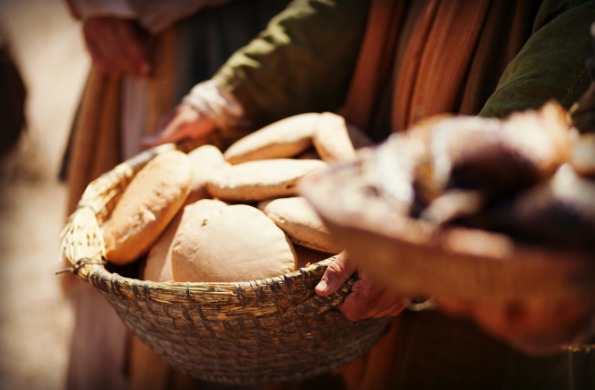
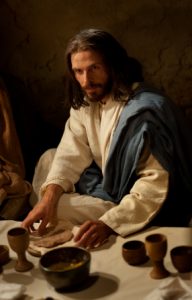
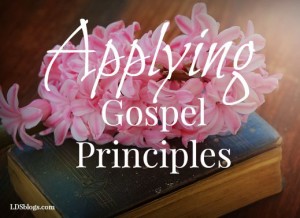


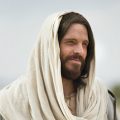


Hi Delisa,
Thank you so much for sharing your wonderful thoughts and insights. I really appreciate it.
Interestingly, I was just reading this the other day. It is a hard doctrine for those who are not willing to seek to understand. I had to ask, and am still asking, the same questions you asked. I’d like to think that I have accepted Christ, but I still have a long way to go to fully receive Him.
Thanks again for your insights.
Thanks for your comment!! I agree in that I feel like I’ve barely scratched the surface of what the Savior offers though I’ve loved Him my whole life.